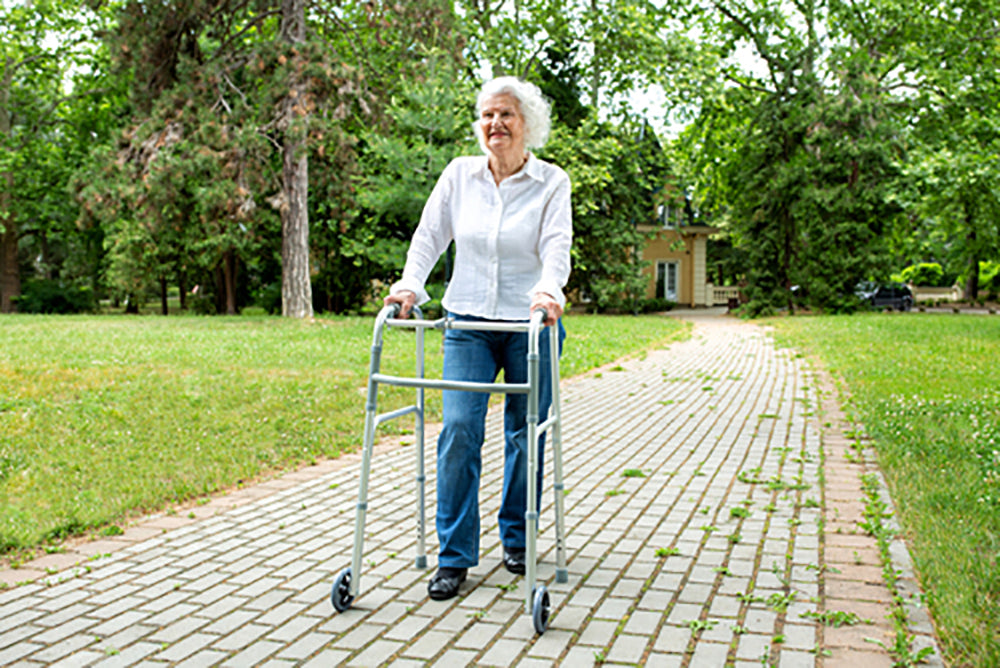The ability to walk around your home, neighborhood and community provides independence. Physical conditions that prevent mobility, whether temporary or permanent can rob us of even the ability to meet our own daily needs as well as interfere with participation in the community or enjoyment of leisure and social activities. Adaptive equipment, including Rollators, walkers, and canes can restore the independence lost by physical disabilities.
Some of the problems that can severely impede the ability to walk enough to maintain independence are:
- Multiple Sclerosis
- Arthritis
- Spina Bifida
- Spinal Injury
- Trauma
- Heart Disease
- Lung Disease (Emphysema)
- Para or Quadriplegia
- Stroke
- Muscular Dystrophy
- Cerebral Palsy
Numerous studies show that handicapped and elderly people who are more active and socially involved retain their independence and self-help skills longer than people with limited interpersonal contact.
Are you thinking of reclaiming/maintaining your independence with a walker or rollator but aren't sure what's the difference, or how to choose the best one? We've got you covered...
A walker is simply a frame of legs that offers stability to someone that cannot bear weight on both legs but doesn't require a wheelchair. Upper body strength is necessary to lift the device with each step and allows for a slow pace. Front wheeled walkers still offer support and stability and the wheels reduce friction to ease forward movement.
A rollator offers support and stability at a bit faster of a pace. There are both three and four wheeled versions and often they are equipped with a seat for resting. Made to fold easily, a rollator can be the perfect lightweight alternative to a wheelchair while outside the home. Many caregivers and home health aides find it reassuring to have a rollator handy when out for doctor appointments or shopping with someone who tires easily and needs that bit of extra support.
How often a person travels and spends time outside of the home should be considered when choosing mobility devices. Larger wheels are better for rougher terrain such as grass or pavement while smaller wheels and frame may be more ideal for someone that spends most of their time at home. It's great to have a traditional walker dedicated to the bedroom to assist in getting to the bathroom at night and a rollator while out having lunch with the family or visiting a park.
Another option that can help with mobility is a cane. We have several options to suit every budget and style. Bariatric canes are recommended for someone over 350 lbs and are typically made of sturdy steel. You can choose a large or small base for further stability and still have the simplicity of a cane over a walker. Cane handles differ too and there are those that are compact and lightweight and those of heavier wood.
Our # 1 walker, has easy two-button release for quick folding, compact storage, transport and side access.
Click here for our low price!
Looking for a great rollator? We have several options. You can choose your favorite color, if the back is padded or not, and if it includes a basket. Brakes come equipped on all our rollators and many have 3 year, 5 year or lifetime guarantees.

The Cardinal Health rollator features a durable, lightweight, aluminum design with a curved and padded backrest for comfort while seated.
Use coupon code: WALK19 at checkout for 10% your rollator, walker or cane today!

